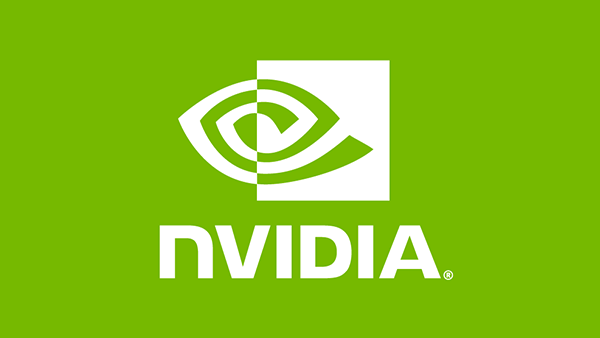Nvidia has become the latest buzzword among developers and in the quantum computing realm, as the chipmaker announced its plan to establish a dedicated research lab called The Nvidia Accelerated Quantum Research Center, or NVAQC in Boston, where it will collaborate with top scientists from Harvard University and the Massachusetts Institute of Technology (MIT). The announcement was made by Nvidia CEO Jensen Huang during the company’s annual software developer (GTC) conference held in San Jose, California on Thursday.
Partners on the project include Quantinuum, the quantum computing company founded through the merger of Cambridge Quantum and Honeywell Quantum Solutions in 2021, as well as Quantum Machines and QuEra Computing.
READ: Nvidia loses $600 billion amid DeepSeek rise (January 28, 2025)
Nvidia CEO Jensen Huang caused a stir in January when he remarked that “useful” quantum computers were decades away, stirring up speculation that the advent of such systems could disrupt Nvidia’s stronghold on the AI market. However, he later said at the 2025 GTC conference, “This is the first event in history where a company CEO invites all of the guests to explain why he was wrong,” Huang said.
Nvidia also offered a view of its latest product, the Blackwell Ultra and subsequent generations of AI chips at its 2025 GTC AI conference. Blackwell has 68 times the computing power of its Hopper line, he said, while Rubin represents a 900-fold increase. When it comes to AI, researchers and scientists at Google believe that quantum and AI are synergistic and that quantum would help collect training data for AI models.
As the research center is still in early stages, Nvidia’s efforts pale in comparison to those of established giants like IBM.
What is quantum computing?
Unlike classical computers which use binary bits, quantum computers use quantum bits — or qubits — which are usually electrons, photons, or another subatomic particle. Connected together, qubits have far more processing power than binary 0s and 1s because they can be 0 and 1 at the same time in a state called superposition. The more qubits that are used, however, the more errors usually occur in a computation, which is costly to fix and makes quantum less appealing to commercialization.
In the field of drug discovery, for instance, Quantum could dramatically accelerate the process of identifying new molecules for potential therapeutics. It could simulate complex chemical reactions with unprecedented accuracy, potentially leading to breakthroughs in the treatment of diseases that have long eluded us.
A McKinsey analysis reveals that four sectors—chemicals, life sciences, finance, and mobility—are likely to see the earliest impact from quantum computing and could gain up to $2 trillion by 2035. Additionally, American companies have attracted more than twice the private investment compared to the UK, establishing the U.S. as the primary destination for quantum technology venture capital.
The National Quantum Initiative Act of 2018 laid the foundation for research, workforce development, and industrial growth, while also emphasizing national security through Post-Quantum Cryptography (PQC) to counter future cyber threats. White House directives have reinforced quantum as a national priority, advocating a whole-of-government approach to maintain leadership and mitigate risks.
With great leaps, comes great responsibility
With all things positive so far, quantum computers could also be misused to break current encryption by bad actors. Europol (a multinational EU security organization) is already urgently imploring financial institutions and policymakers to prioritize the transition to quantum-safe (or post-quantum) cryptography.
The tech giants’ quantum race
Google, Microsoft and IBM all offer quantum computing as a service. On Feb. 19, right after Google unveiled “Willow”, Microsoft introduced its quantum chip Majorana 1. “Powered by a Topological Core, our processor is designed to scale to a million qubits—enough computing power to tackle humanity’s toughest challenges in energy, medicine, and beyond”, Microsoft stated in a post.
READ: Nvidia rises to second most valuable company after Q4 earnings surge (February 27, 2025)
Similarly, Amazon recently introduced a prototype “Ocelot”, which supposedly uses scalable architecture for reducing error correction by up to 90%.
Beyond the tech giants
As qubits are highly susceptible to noise and environmental disturbances, which can lead to errors in computations, diverse institutions are tackling the Quantum Error Correction (QEC) challenge from multiple angles, such as:
• IBM in collaboration with the University of California, Santa Barbara are focused on implementing and experimentally validating surface codes, a leading QEC technique.
• PsiQuantum is a startup pursuing a scalable, photonics-based approach to fault-tolerant quantum computing.
The field is also witnessing rapid advancements in high level quantum programming languages such as Q#, Cirq, Qiskit, and PennyLane. These innovations collectively drive the efficient application of quantum computing, paving the way for a much faster, progressive era.
In January, Europe initiated a review of outward Foreign Direct Investments (FDI) in critical security technologies, with quantum among the top three areas under scrutiny. As quantum becomes useful for military and national security reasons, export controls on quantum hardware are expected to intensify, shaping global supply chains and strategic alliances.
